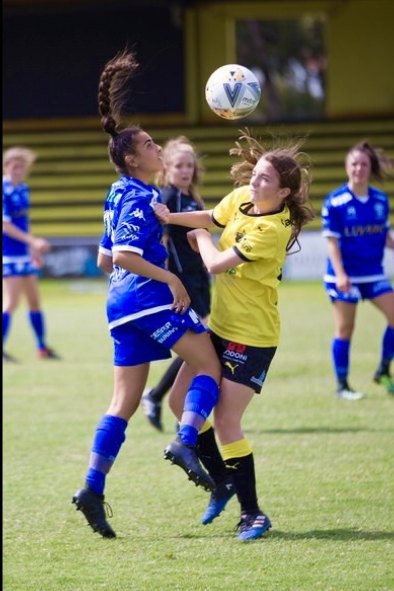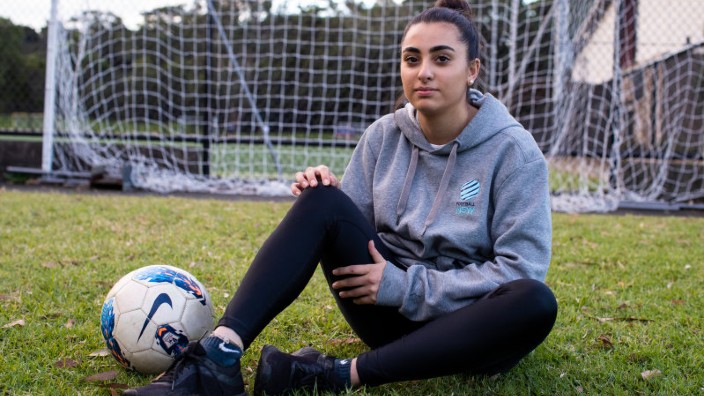From the age of seven, Christina Stefanou and her twin brother started playing soccer and instantly fell in love with the sport.
Their mum, Korina Stefanou, tells the Sydney Morning Herald she was relieved they had chosen a “safe sport” with no dangerous tackling, but for Christina it was so much more.
Over ten years, Christina started playing at her local club in Albury-Wodonga and moved through the ranks, representing NSW in the national league, then from the age of 14 travelling to Melbourne several days a week to play for South Melbourne’s NPL team.
She was touted as a rising star, tipped to play for Australia or win a scholarship to a US university. But at 16, she started getting headaches, eyesight problems, feeling dazed, and that progressed to lapses in memory and concentration.
Christina was eventually diagnosed with post-concussion syndrome and had to give up the sport entirely because of a brain injury acquired from heading the ball too many times. She spent year 11 and 12 doing rehab and nearly didn’t make it to university at all.

“I didn’t think I’d be here, not from where I was – no way,” Christina, who is now 19 years old and studying exercise sport science at the University of Wollongong, tells the SMH.
Christina estimates she had about eight concussions from heading the ball, starting from age 11. At first it would require a hard knock from heading a ball at high speed during a game but later softer impacts, such as in training or even from shaking her head, could trigger symptoms.
Her mum, Korina, said she never realised soccer could be dangerous and wished she had known more about concussion.
“We honestly didn’t know,” she told the SMH. “We would tell her to get in there and have a go as much as anyone else did. We would chuckle on the sideline about her going in for the headers when some would shy away at the sound of the ‘thud’.”
Recently, a debate has emerged around Football Australia’s stance on junior players heading to ball. Some say Australia should follow the US and UK example and ban heading outright for players under a certain age, while others argue that children need to be prepared and taught proper technique.

Korina told the newspaper that she did not blame the local clubs who were all volunteers doing their best, but she wanted Football Australia to ensure coaches were trained about concussion and parents and players were given an information brochure.
If Christina had her way, she would ban heading for anyone under the age of 16. She said allowing it automatically created pressure for players to do it.
“Children can be trained to use their chest or any other parts of the body and [coaches and other players] also need to not make a big deal out of it if someone doesn’t header the ball,” Christina tells the SMH.
“Because you’re technically allowed to do it, you’re told to go for the ball, get the ball, header it, do what you have to do for it. I think that definitely needs to change.”
Source: SMH.

